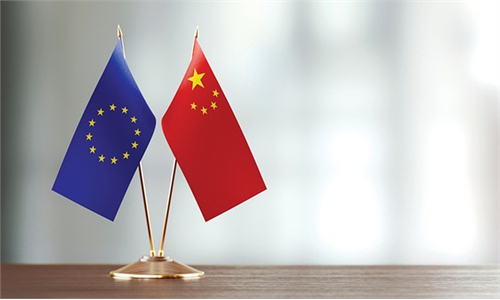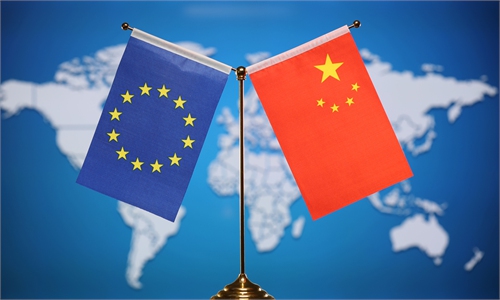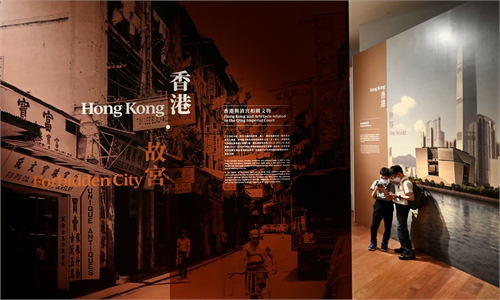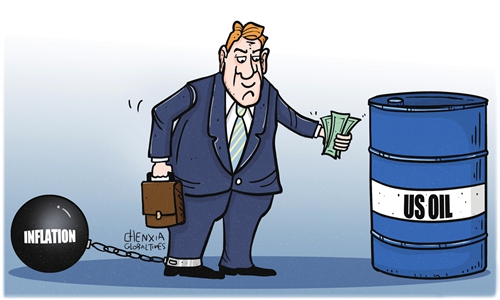China, EU could cooperate amid US 'disreputable role' in worsening world food crisis
US blaming China’s ‘absence’ in food crisis groundless: analyst
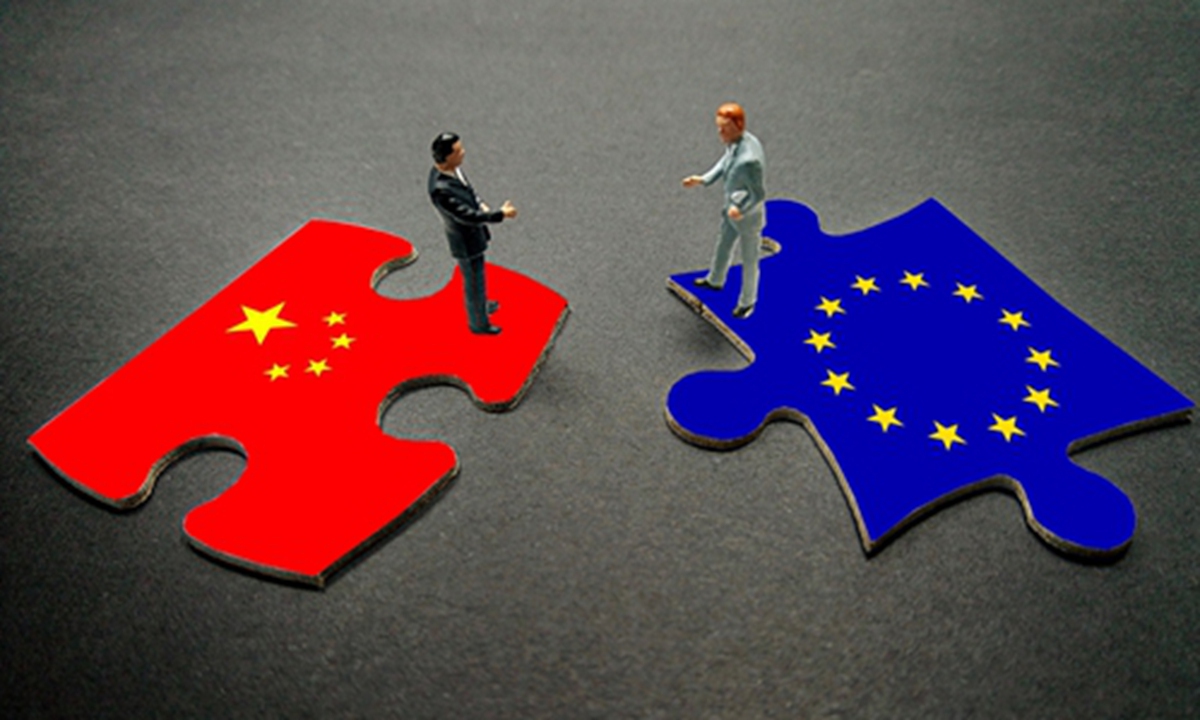
China-EU relationship Photo: VCG
While the world is grappling with an urgent food crisis and a devastating global inflation, the US is still trying to shift blame by criticizing and pressuring China, which analysts said is disreputable. The analysts also called for more cooperation between China and the EU to take concrete actions to secure food security and global chain by seeking consensus on the proposal put forward by China and EU's efforts in defusing the crisis.The global food crisis has drawn more attention recently and on Monday the UN held a special meeting to discuss how to deal with the urgent crisis. The UN General Assembly President Abdulla Shahid said that scaling up climate resilience across food systems is among the actions needed to counter rising hunger and malnutrition.
The World Bank has also warned that the conflict in Ukraine will plunge an additional 95 million people into extreme poverty, and 50 million into severe hunger, this year.
The US and some Western countries are imputing the skyrocketed food prices to the conflicts between Russia and Ukraine as Ukraine is a leading wheat exporter and accusing Russian warships of blocking ports. In addition, they are also criticizing China for not helping to solve the crisis.
On Monday, at the Center for Strategic and International Studies, Samantha Power, administrator of the US Agency for International Development (USAID), urged other nations including China to do more to fight a food crisis aggravated by the conflicts in Ukraine.
She also pinned blame on China over its trade restrictions on fertilizer and "hoarding" of grain while millions of people in East Africa face starvation, media reported.
In response to Power's accusation, Chinese Foreign Ministry spokesperson Zhao Lijian said at Tuesday's press conference that as a developing country, China is not obligated for development assistance but as the second contributor of UN membership fees, China has always actively taken a part in global development cooperation to make contributions to secure global food security.
Zhao noted that since the outbreak of the COVID-19 pandemic, China has actively offered food assistance to some countries and it is also the only developing country that has offered the most money to the UN food cooperation agencies, sent the most experts and took part in the most programs.
"The international community knows who is making the global food crisis … we hope the US could reflect its disreputable role in making such crisis and stop groundlessly accuse China," Zhao said.
China has nothing to do with the current global food supply chain disruptions. The root cause was the expansion of NATO that fueled the conflicts between Russia and Ukraine, which are major grain exporters in the world, a Beijing-based research fellow focusing on Russia, who asked for anonymity, told the Global Times on Tuesday.
In the first half of 2022, China's exports of food and live animals totaled $35.39 billion, up 11.4 percent year-on-year, according to statistics from the General Administration of Customs.
The global food problem caused by the conflict between Russia and Ukraine will depend on the political settlement of the issue to alleviate the problem, Hu Qimu, chief research fellow at the Sinosteel Economic Research Institute, told the Global Times on Tuesday.
The current problems are caused more by sanctions led by the US on Russia. Russia, which was a major global grain, energy and fertilizer exporter, cannot play its role as market player under sanctions, Li Yong, deputy chairman of the Expert Committee of the China Association of International Trade, told the Global Times.
"The global crisis has come to a point that it has to be managed. Energy and food prices are pushing up global inflation. Europe's current predicament is likely to lead to division and divergence within the EU," said Li.
The European Union has suffered more since the Ukraine crisis. It has been busy dealing with the food crisis recently and is hopeful that a deal between Ukraine and Russia over the exports of grain can be reached this week to allow for millions of tones of Ukraine grains that are currently stuck in Black Sea ports to be exported.
The grain export issue of Ukraine has made some progress under the mediation of the international community and the UN, and the EU can still play its role in further solving the problem at this time, Cui Hongjian, director of the Department of European Studies at the China Institute of International Studies, told the Global Times on Tuesday.
The EU can first provide convenience and security guarantee for grain transportation in Ukraine, including communication and coordination with neighboring EU countries and effective diplomatic mediation to avoid miscalculation and further deterioration of the situation, Cui said.
In addition, the EU should also maintain direct and effective communication with Russia, because the two sides have not solved this issue through direct negotiation, which has brought some obstacles to the solution of grain export issue, the expert explained.
Analysts noted that EU could also promote dialogue and cooperation with China on jointly dealing with the food crisis instead of following the US in criticizing China. As an important member of the UN, China has also played an important role in setting up a special group on energy and food issues authorized by the UN to carry out relevant work.
China has also made its proposal in solving the food crisis. China's Mission to the EU released a statement on its website on Monday, listing what China says and does on ensuring global food security and calling on more countries to put aside their differences and work together.
Moreover, during the UN meeting on food crisis on Monday, on behalf of the Group of Friends of the Global Development Initiative, Chinese Ambassador Zhang Jun, Permanent Representative of China to the UN, called for coordinating policy response to the global food crisis at the special meeting and put forward China's solution.
Zhang called on the international community to urgently support countries affected by the food crisis and urged all stakeholders, including developed countries to strengthen cooperation and keep a strong focus on the transformation of the global food system towards its fairness and sustainability. Moreover, "we must eliminate any unilateral and protectionist measures that run counter to the spirit and rules of the WTO," said Zhang.
It is a very appropriate choice for China and the EU to discuss relevant issues through high-level dialogues, Cui said, noting that the cooperation between China and the EU is based on the consensus of upholding multilateralism and being responsible to the international community, minimizing and even avoiding the negative spillover effects caused by the Ukraine crisis.

